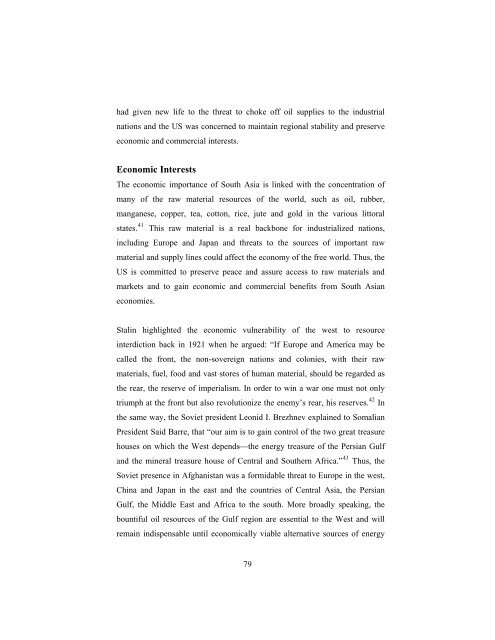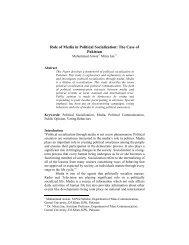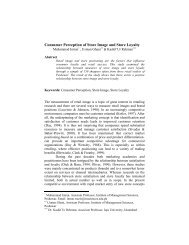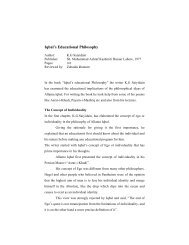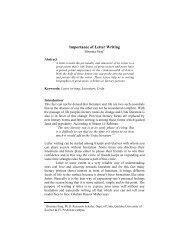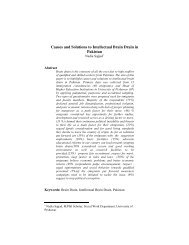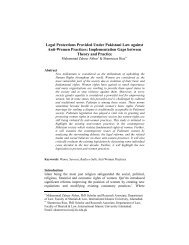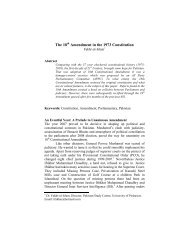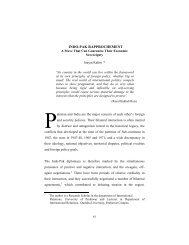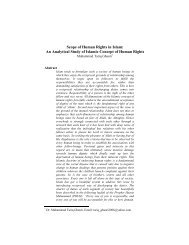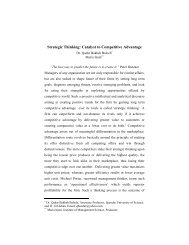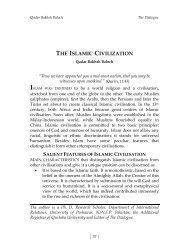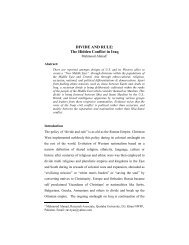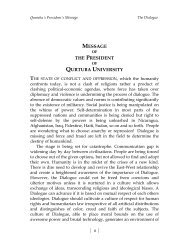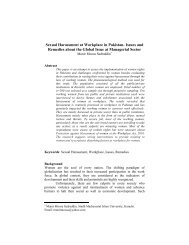COLD WAR POLITICS OF SUPERPOWERS IN SOUTH ASIA Abstract
COLD WAR POLITICS OF SUPERPOWERS IN SOUTH ASIA Abstract
COLD WAR POLITICS OF SUPERPOWERS IN SOUTH ASIA Abstract
Create successful ePaper yourself
Turn your PDF publications into a flip-book with our unique Google optimized e-Paper software.
had given new life to the threat to choke off oil supplies to the industrial<br />
nations and the US was concerned to maintain regional stability and preserve<br />
economic and commercial interests.<br />
Economic Interests<br />
The economic importance of South Asia is linked with the concentration of<br />
many of the raw material resources of the world, such as oil, rubber,<br />
manganese, copper, tea, cotton, rice, jute and gold in the various littoral<br />
states. 41 This raw material is a real backbone for industrialized nations,<br />
including Europe and Japan and threats to the sources of important raw<br />
material and supply lines could affect the economy of the free world. Thus, the<br />
US is committed to preserve peace and assure access to raw materials and<br />
markets and to gain economic and commercial benefits from South Asian<br />
economies.<br />
Stalin highlighted the economic vulnerability of the west to resource<br />
interdiction back in 1921 when he argued: “If Europe and America may be<br />
called the front, the non-sovereign nations and colonies, with their raw<br />
materials, fuel, food and vast stores of human material, should be regarded as<br />
the rear, the reserve of imperialism. In order to win a war one must not only<br />
triumph at the front but also revolutionize the enemy’s rear, his reserves. 42 In<br />
the same way, the Soviet president Leonid I. Brezhnev explained to Somalian<br />
President Said Barre, that “our aim is to gain control of the two great treasure<br />
houses on which the West depends⎯the energy treasure of the Persian Gulf<br />
and the mineral treasure house of Central and Southern Africa.” 43 Thus, the<br />
Soviet presence in Afghanistan was a formidable threat to Europe in the west,<br />
China and Japan in the east and the countries of Central Asia, the Persian<br />
Gulf, the Middle East and Africa to the south. More broadly speaking, the<br />
bountiful oil resources of the Gulf region are essential to the West and will<br />
remain indispensable until economically viable alternative sources of energy<br />
79


